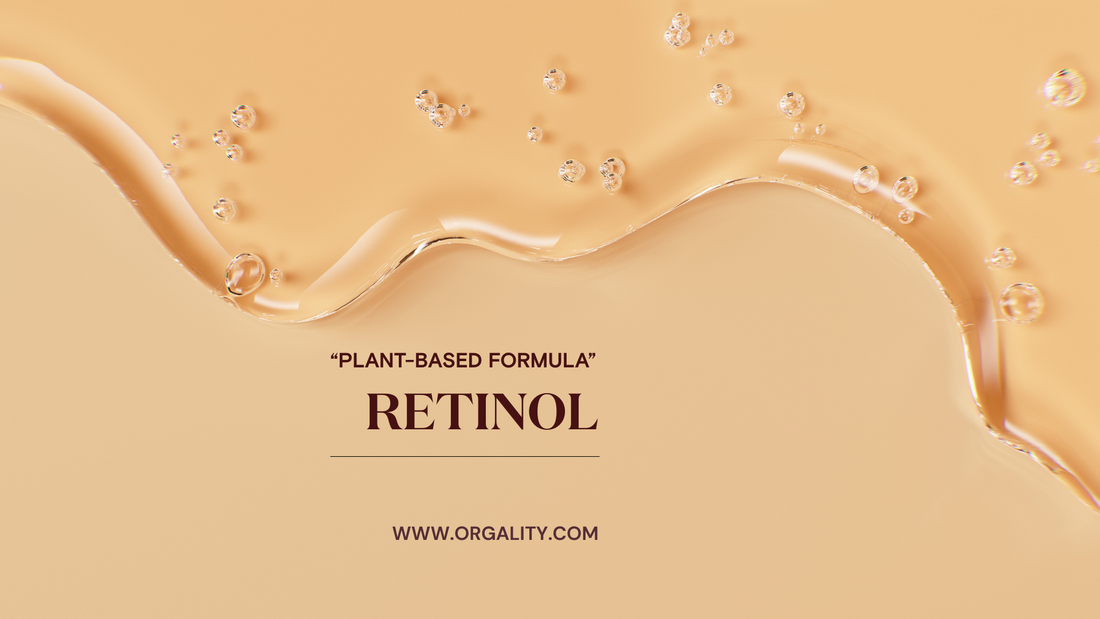
Retinol For Acne & Blemishes: Does it Really Work?
Share
Acne and blemishes are among the most common skin concerns affecting people of all ages. From teenage breakouts to adult hormonal acne, finding an effective treatment can feel overwhelming. Amidst the many solutions available, retinol stands out as a dermatologist-recommended, research-backed powerhouse. But does it really work for acne and blemishes? The short answer is—yes. The longer answer involves understanding how retinol works, how to use it correctly, and why it’s earned its reputation as a gold-standard ingredient.
In this blog, we’ll explore everything you need to know about using safe retinol for acne and blemish-prone skin, from its benefits to application tips and common mistakes to avoid.
What is Retinol?
Retinol is a derivative of vitamin A, belonging to a group of compounds called retinoids. Retinoids are well-known for their ability to boost cell turnover, unclog pores, stimulate collagen production, and even out skin tone. They come in both prescription-strength forms (like tretinoin and adapalene) and over-the-counter options, including retinol and retinaldehyde.
When applied topically, retinol is converted into retinoic acid, the active form that interacts with skin cells to stimulate renewal and repair.
How Retinol Works for Acne & Blemishes
Retinol tackles acne and blemishes on multiple levels, making it one of the most effective long-term solutions. Here's how:
- Unclogs Pores - Retinol increases cell turnover, which helps shed dead skin cells that can accumulate on the skin’s surface and block pores. Clogged pores are the breeding ground for acne-causing bacteria, so keeping them clear is key to preventing breakouts.
- Reduces Oil Production - Overactive sebaceous (oil) glands can lead to acne. Retinol helps regulate oil production, making it especially beneficial for oily and combination skin types.
- Fights Inflammation - Inflammatory acne like papules, pustules, and cysts can be painful and difficult to manage. Retinol has anti-inflammatory properties that reduce redness, swelling, and irritation over time.
- Fades Post- Acne Marks & Blemishes - One of retinol's biggest advantages is its ability to even out skin tone by stimulating collagen and speeding up cell regeneration. This helps fade post-inflammatory hyperpigmentation (PIH) and acne scars.
- Prevents Future Breakouts - By keeping pores clear and skin turnover steady, retinol helps break the acne cycle and keeps new pimples from forming.
Scientific Backing: Does Retinol Really Work?
As per research bakuchiol, a plant based retinol is a gentle effective alternate to lab created retinols. Retinols derived from animal sources are extensively used in various cosmetic formulations that may often result in extreme dryness and irritation. Plant based retinols are gentle and work good for sensitive skin. Numerous studies support retinol's effectiveness in treating acne:
- A study published in the Journal of Clinical and Aesthetic Dermatology found that 0.3% retinol significantly reduced acne lesions over 12 weeks, improving both inflammatory and non-inflammatory breakouts.
-
Another clinical trial demonstrated that retinol reduced comedones and improved overall skin texture with consistent use.
While prescription-strength retinoids work faster, over-the-counter retinol is ideal for beginners and those with sensitive skin, offering similar benefits with fewer side effects.
How to Use Retinol for Acne: Step-by-Step Guide
Introducing retinol into your skincare routine requires patience and proper technique. Here’s how to do it right:
- Start Slow - Begin with a plant based retinol ( bakuchiol) two to three times a week. Allow your skin to build tolerance before increasing frequency or strength.
- Apply at Night - Retinol breaks down in sunlight, so it’s best used at night. Apply it on clean, dry skin after cleansing and before your moisturizer.
- Use the “Pea-Sized” Rule - A pea-sized amount is enough for the entire face. Applying more won’t make it work faster.
- Moisturize - To minimize dryness and peeling, always follow retinol with a hydrating moisturizer. You can also applying moisturizer before and after retinol to buffer its strength.
- Protect with SPF - Your skin becomes more sensitive to sunlight with retinol. Daily sunscreen (SPF 30 or higher) is a must to prevent further damage and hyperpigmentation.
Common Side Effects & How to Handle Them
During the initial weeks, you might experience the “retinol purge,” a temporary increase in breakouts, but this is rare as the ingredient accelerates cell turnover and brings existing pimples to the surface. This usually subsides within 4–6 weeks.
Possible Side Effects:
- Dryness and flaking
- Redness or irritation
- Mild burning or sensitivity
How to Minimize Side Effects:
- Don’t combine retinol with strong actives (like AHAs, BHAs, or benzoyl peroxide) initially.
- Keep your routine simple and focused on hydration and barrier repair.
- Avoid using retinol every night at first consistency over intensity is key.
Who Should Use Retinol for Acne?
Retinol is suitable for:
- Teenagers and adults with mild to moderate acne
- Oily or combination skin types
- People dealing with acne scars or blemishes
- Those looking for long-term skin refinement
Sensitive skin types should start slowly with bakuchiol only and not high lab-created retinols.
When Will You See Results?
Patience is essential with retinol. Most people begin to see noticeable improvement in acne. and blemishes within:
- 4–6 weeks: Reduced clogged pores and fewer breakouts
- 8–12 weeks: Smoother texture, improved tone, fading of scars
- Consistent use over 6 months can lead to significantly clearer, healthier skin
- Remember, retinol is a long-term investment for your skin not an overnight fix.
- Conclusion: Is Retinol Worth It for Acne & Blemishes?
Absolutely. Bakuchiol-retinol is one of the most effective ingredients for acne-prone skin, backed by science and dermatologist endorsements. It doesn’t just treat active acne—it also prevents future breakouts, improves texture, fades scars, and refines pores. With proper use and patience, retinol can be a transformative addition to your skincare routine.
If you’re struggling with acne and have tried everything from harsh cleansers to drying spot treatments, it might be time to embrace retinol—your skin’s long-term ally for clarity, resilience, and glow.


